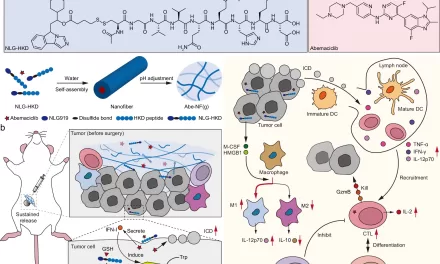New research reveals that a Mediterranean diet combined with omega-3 supplements can significantly reduce acne lesions and improve quality of life, offering a promising adjunct to conventional acne therapies.
In a groundbreaking study published today (July 10) in the Journal of Cosmetic Dermatology, scientists have found that a Mediterranean diet paired with omega-3 fatty acid supplements leads to substantial improvements in both inflammatory and non-inflammatory acne lesions. This research, which included 60 individuals with mild to moderate acne, emphasizes dietary adjustments as a valuable component of modern acne treatment plans.
The study highlighted a startling statistic: at the start, 98.3% of participants were deficient in omega-3 fatty acids. However, those who achieved the targeted omega-3 levels experienced a notable reduction in acne severity. This underscores the crucial role that omega-3s play in skin health.
“Lifestyle interventions, including dietary recommendations, should not be considered in opposition to prescription medications, but rather as a valuable adjunct to any modern acne treatment plan,” said Dr. Anne Guertler, the study’s corresponding author from Ludwig Maximilian University of Munich. “Future studies should build on the foundation laid by our current findings in a randomized, placebo-controlled design to improve dietary recommendations for acne patients.”
The Mediterranean Diet
The Mediterranean diet, inspired by the traditional eating habits of people from countries bordering the Mediterranean Sea, is celebrated for its numerous health benefits. This diet emphasizes high intakes of fruits, vegetables, whole grains, legumes, and nuts, with olive oil as the primary source of added fat due to its heart-healthy properties.
Protein sources in this diet mainly come from fish and poultry, with red meat consumed sparingly. Dairy products, such as cheese and yogurt, are included in moderation, and a moderate intake of wine, typically red wine, is enjoyed during meals.
Beyond the nutritional aspects, the Mediterranean diet also focuses on the social enjoyment of meals with family and friends. It is well-known for its benefits in reducing the risk of heart disease and has been associated with lower levels of LDL (bad) cholesterol, which is linked to heart disease and early death. Additionally, it has been associated with a reduced incidence of cancer, Parkinson’s, and Alzheimer’s diseases, making it a balanced and heart-healthy dietary approach.
Omega-3 Fatty Acids
Omega-3 fatty acids are essential fats that the body cannot produce on its own, requiring them to be obtained through diet or supplements. The three main types of omega-3 fatty acids are alpha-linolenic acid (ALA), eicosapentaenoic acid (EPA), and docosahexaenoic acid (DHA). ALA is primarily found in plant oils such as flaxseed, soybean, and canola oils, while EPA and DHA are commonly found in marine oils from fish and algae.
Omega-3 supplements are particularly noted for their potential health benefits, especially EPA and DHA, which support heart health, reduce inflammation, and contribute to brain and eye health. These supplements are often derived from fish oil, krill oil, and algal oil, making them suitable for various dietary preferences, including those of vegetarians and vegans who opt for algal-based sources.
This study’s findings suggest that incorporating a Mediterranean diet and omega-3 supplements into acne treatment plans could be a game-changer for many patients, potentially improving not only their skin health but also their overall quality of life.
Reference: “Exploring the potential of omega-3 fatty acids in acne patients: a prospective intervention study” 10 July 2024, Journal of Cosmetic Dermatology. DOI: 10.1111/jocd.16434












